
Have you ever wished your day had a few more hours? You’re not alone. Today’s world is full of tasks, to-do lists, and endless distractions. This is the precise moment when knowing what time management is and how to effectively use it can make all the difference.
I’ll explain what time management is in this guide, why it’s important for both professionals and students, and how you can begin utilizing time-tested methods like time blocking, the Pomodoro Technique, and other clever tactics right now.
What is Time Management?
Fundamentally, time management is the art (and science) of planning and arranging how you divide your time between tasks. You can accomplish more with effective time management, but not by putting in twenty hours a day. Rather than feeling like you’re always in a race against time, you complete the right tasks in the right order.
Consider it this way: having good time management abilities enables you to choose wisely where to focus your energies, resulting in not just being busy but also being productive.
Why is Time Management Important?
Whether you’re a student, a fresh professional, or leading a busy household, time can feel like sand slipping through your fingers. But here’s what happens when you master it:
1. Better Productivity: You’ll check off more tasks, and your work will be higher quality because you’re less rushed.
2. Less Stress: No more last-minute panic or all-nighters. Proper planning gives you breathing space.
3. More Time for You: When you manage your hours well, you create room for hobbies, family, or simply doing nothing guilt-free.
4. Smarter Decisions: When you’re not reacting to urgent fires all day, you actually have time to think things through.
5. Work-Life Balance: Good Time management is the backbone of a healthy balance between work (or studies) and your personal life.
Key Elements of Good Time Management
Effective time management isn’t just about ticking tasks off a to-do list. It’s about:
- Setting Clear Goals: Know what matters most.
- Prioritizing Tasks: Focus on what’s urgent and important.
- Planning Ahead: Use daily or weekly schedules that fit your life.
- Staying Disciplined: Avoid distractions and say no when needed.
Popular Time Management Techniques That Work
There’s no one-size-fits-all solution, but here are a few time management techniques many people swear by.
1. The Pomodoro Technique
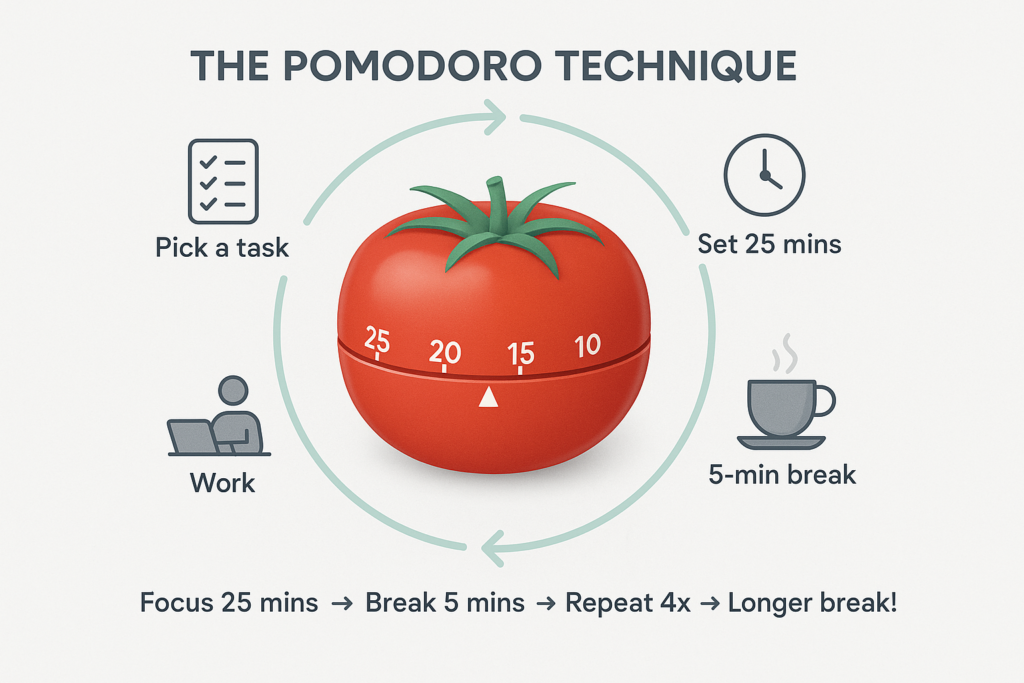
Have you ever struggled to stay focused for hours? The Pomodoro Time Management Technique can really help. It’s a simple way to break your work into short, focused bursts. For example, while I’m writing this article, I’m using the Pomodoro Technique to stay on track. Here’s how it works:
- Pick a task.
- Set a timer for 25 minutes (this is one “Pomodoro”).
- Work only on that task until the timer rings.
- Take a short 5-minute break to relax.
- After 4 Pomodoros, take a longer break (15–30 mins).
These short sessions help you beat procrastination, stay fresh, and actually finish things without feeling exhausted. Next time you feel stuck or distracted, try doing just one Pomodoro — you’ll be surprised how much you can get done!
2. Time Blocking
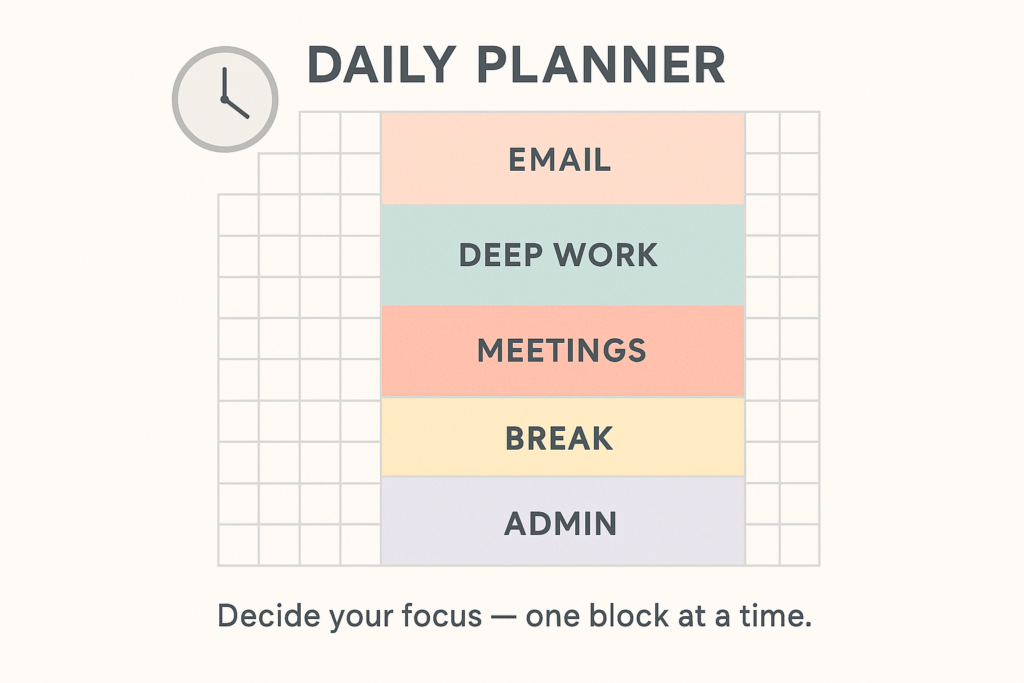
What is time blocking? It’s a simple way to plan your day by dividing it into blocks of time, each with a clear purpose. For example, you might have one block just for answering emails, another for focused work like writing this article, and another for meetings or breaks.
Instead of jumping randomly from one task to another, you decide exactly when you’ll do each thing — and stick to it. This keeps your mind clear and helps you get more done without feeling overwhelmed.
Even big names like Elon Musk and Bill Gates swear by time blocking. It helps them protect their focus and stay in control of their busy days. If it works for them, imagine what it could do for you!
3. Eisenhower Matrix
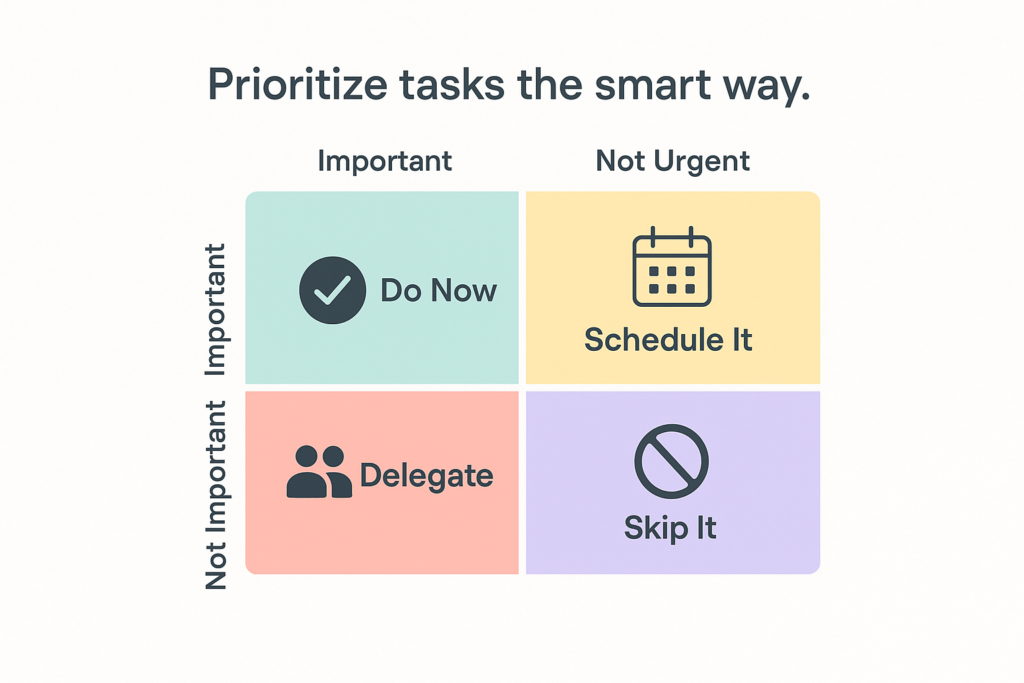
This simple 2×2 grid helps you figure out what’s truly important vs. what just feels urgent. Tasks are sorted into:
- Important and Urgent → Do now.
- Important but not Urgent → Schedule it.
- Urgent but not Important → Delegate.
- Neither Important nor Urgent → Skip it.
4. Pareto Principle (80/20 Rule)
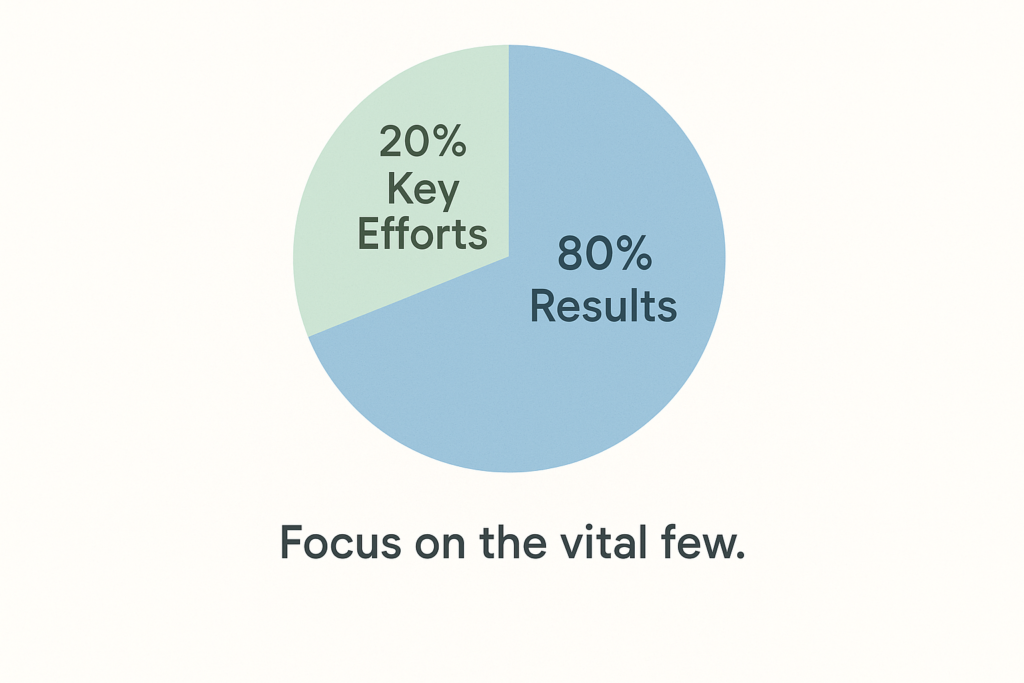
The Pareto Principle, also called the 80/20 Rule, is a classic time management trick. It means that about 80% of your results come from just 20% of your efforts.
So how does this help you? It’s simple: find the small tasks that give you the biggest results — and focus on those first. For example, while writing this article, researching good examples and outlining the key points is that powerful 20%. The small edits and tweaks can come later.
When you know what work really matters, you can stop wasting time on low-impact tasks and put your energy where it counts the most.
Time Management for Students: A Must-Have Skill
For students juggling classes, assignments, and maybe a part-time job, time can feel painfully short. Learning what time management is for students means knowing how to:
- Break big assignments into smaller tasks.
- Use planners or apps to track deadlines.
- Avoid multitasking (yes, it actually slows you down).
- Set aside blocks for study, friends, and downtime.
Mastering time management early makes adult life so much easier later.
Common Time Wasters to Watch Out For
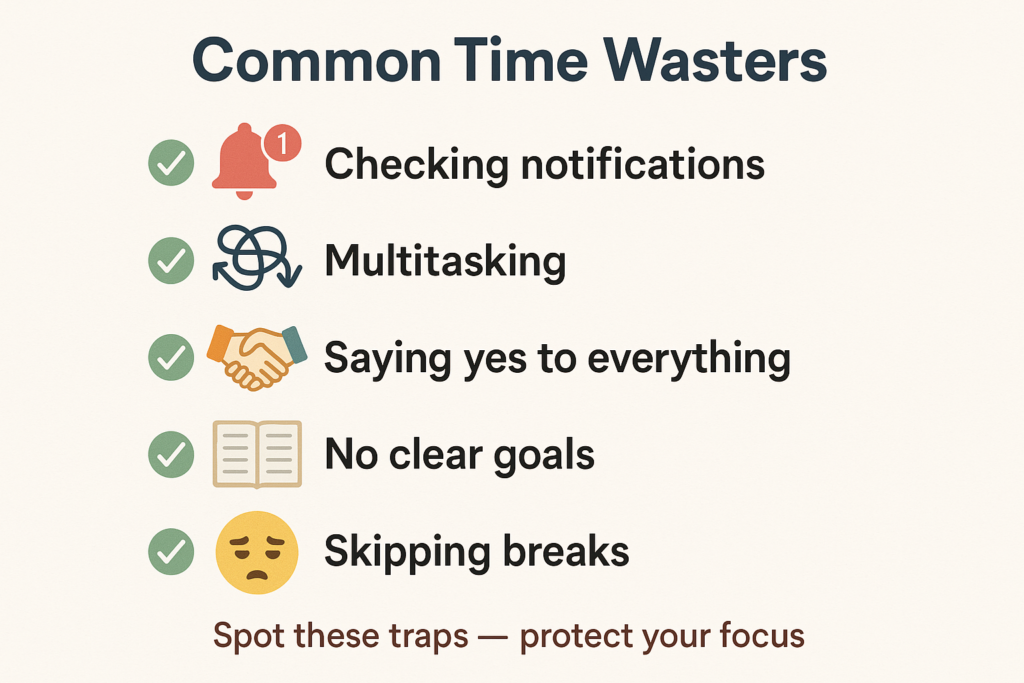
Even the best plan fails if you fall into these traps:
- Checking email or notifications all day.
- Multitasking instead of focusing on one thing.
- Saying “yes” to everything and everyone.
- Not setting clear daily goals.
- Skipping breaks (burnout sneaks up fast!).
How to Start Managing Your Time Better
Would you be ready to implement these concepts? Here’s a straightforward strategy:
- Put all of your tasks for tomorrow on paper.
- Decide which three tasks are most crucial.
- Set aside time for those activities and keep to it.
- Try a Pomodoro: concentrate for 25 minutes, then take a 5-minute break.
- Take stock of your day. What went well? What didn’t work? Make tomorrow better.
Small daily wins add up — that’s the real secret behind time management.
Takeaway: Time Management = Life Management
So the next time someone asks you, what is time management? You’ll know it’s not about squeezing more hours from thin air. It’s about using the same 24 hours smarter.
Use the right skills, experiment with techniques like time blocking and the Pomodoro method, and ditch distractions. You’ll feel in control, not overwhelmed.
Time is precious. Manage it well, and you manage your life better too.
